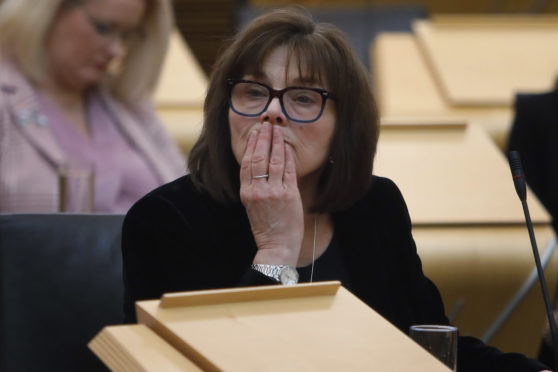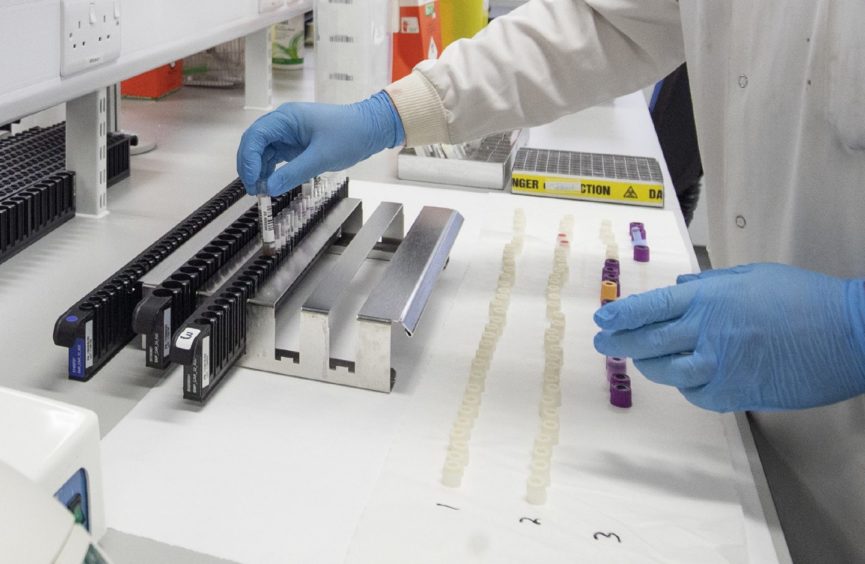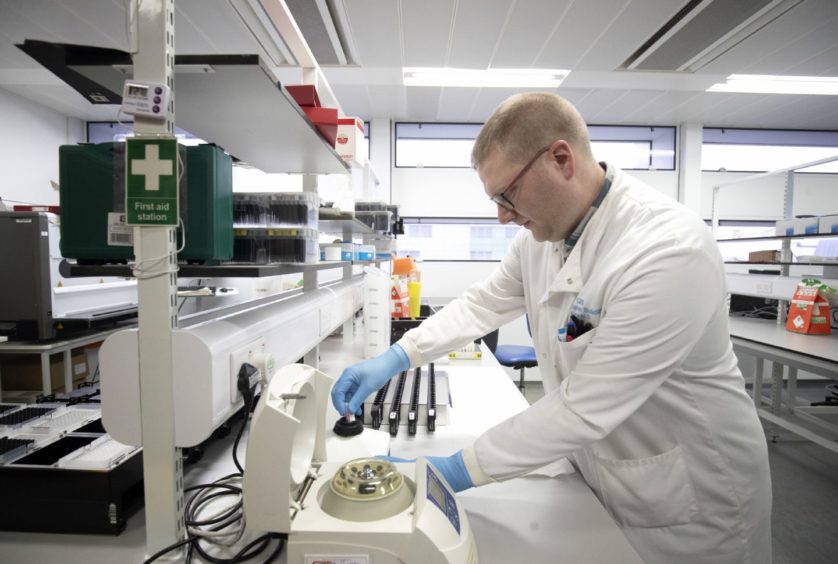Two new cases of coronavirus have been confirmed in Grampian and Ayrshire.
It brings the total number of cases in Scotland to three, with another previously confirmed in the Tayside area.
The Scottish Government said both patients were currently clinically well and were receiving appropriate clinical care.
One patient had recently travelled to northern Italy and the other had contact with a known positive case – although this contact was not with the first positive case confirmed in Scotland.
Clinicians have begun contact tracing, the process of gathering details of the places they have visited and the people they have been in contact with.
The government said it was important to note that this tracing process does not involve people the patients may have passed on the street or in a shop – as the risk in these situations is very low.
Close contact involves either face-to-face contact or spending more than 15 minutes within two metres of an infected person.
Those at risk of infection will be contacted by health protection teams for further advice. Those who are not contacted are not at risk.
Health Secretary Jeane Freeman said: “Our first thoughts must be with the patients diagnosed with coronavirus, I wish them a full and speedy recovery.
“We expect the number of cases to rise and Scotland is well-prepared for a significant outbreak of coronavirus.
“There is currently no treatment or vaccine so early detection measures will continue to be vital in helping to prevent the spread of the virus.
We expect the number of cases to rise and Scotland is well-prepared for a significant outbreak of coronavirus.”
“People have a vital role to play in helping us contain any outbreak by following the latest health and travel advice, and following basic hygiene precautions, such as washing hands frequently, not touching their face and covering their nose and mouth with a tissue when coughing or sneezing.”
Scotland’s Chief Medical Officer Dr Catherine Calderwood said: “Firstly our thoughts are with those who have been diagnosed, and with their families.
“Scotland is well equipped to deal with infections of this kind. We have a proven track record of dealing with challenging health issues, and have been preparing for this possibility since the beginning of the outbreak.
“We practice and prepare our response to disease outbreaks and follow tried and tested procedures, following the highest safety standards possible for the protection of NHS staff, patients and the public.”
After the announcement, First Minister Nicola Sturgeon met staff supporting Scotland’s public information response to coronavirus.
During a visit to NHS 24’s contact centre at the Golden Jubilee National Hospital in Glasgow, the first minister thanked NHS 24 staff, including nurses, call handlers and health information advisors operating the 111 service and a dedicated coronavirus helpline service, for their efforts to keep the public informed.
The helpline has been set up by NHS 24 for people who do not have symptoms and are looking for general information and advice on coronavirus.
More than 400 staff work at NHS 24’s Clydebank call centre, which is one of four main centres located across Scotland.
Monday was the busiest day to date for the coronavirus helpline, with 584 calls recorded, up from 143 on Sunday, when the first positive case in Scotland was identified. On Tuesday there were 430 calls.
NHS Inform’s coronavirus page has registered 264,118 visits as of Tuesday, with 55,000 visits on Monday alone.
First Minister @NicolaSturgeon met staff supporting Scotland's public information response to coronavirus (COVID-19) at @NHS24's contact centre today⬇️https://t.co/oODdPkLXnS pic.twitter.com/tLK8bkoreK
— First Minister (@ScotGovFM) March 4, 2020
Ms Sturgeon said: “Our thoughts are with the two patients who have been newly diagnosed with coronavirus and their families, and I wish them all the best for their recovery.
“The Scottish Government and NHS Scotland are well-prepared to deal with a coronavirus outbreak, but the public also have a big role to play in helping us any contain any potential spread of coronavirus in Scotland for as long as possible.
“So I want to thank staff here for all their hard work to answer questions about coronavirus and keep the public informed.
Our thoughts are with the two patients who have been newly diagnosed with coronavirus and their families.”
“As the number of positive cases in Scotland increases, it is vital people stay up to date with the latest health and travel advice on NHS Inform, as well as following basic hygiene precautions, such as washing hands frequently, not touching their face and covering their nose and mouth with a tissue when coughing or sneezing.”
NHS 24’s Director of Service Delivery Steph Philips said: “Over the last 10 days we have received more than 3,000 calls on coronavirus to our helpline and those numbers are increasing, with over 500 calls to the 111 service since Friday in addition to the coronavirus helpline, and we saw another significant increase on Monday following the first positive case in Scotland.
“That’s why we’re asking people in Scotland to check NHS Inform online in the first instance, as it’s the quickest and easiest way to get the latest information if they have questions about travel risk or symptoms, as well as our self-help guide tool.
“NHS Inform is being updated with latest information for the Scottish public on a daily basis.
“In addition to the helpline, we’re also encouraging people to phone their GP during the day or call NHS 24 on 111 out of hours.”
David Duguid, Scottish Conservative MP for Banff and Buchan, said: “It was inevitable that we would start to see cases of COVID-19 or Coronavirus in Grampian.
“There are clear procedures in place to deal with this and our local health board will be well prepared.
“It is important for people across the north-east to follow the advice from government on hand-washing as the best way to prevent and slow the spread of Coronavirus.
“The UK and Scottish governments and the NHS are working around the clock to fight this.
“It is imperative that anyone who thinks they may be developing symptoms to follow clinical advice and contact NHS 24 rather than go to A&E.”
Ms Freeman had earlier said that the government was looking at capacity in the NHS and “what more we can do now in order to create additional headroom inside the health service”.
Consideration was also being given to how to increase capacity in areas of the NHS such as high oxygen therapy for patients, Ms Freeman said.
Scotland’s first case emerged on Sunday, in a Tayside patient who had recently returned from Italy.
Meetings were also taking place with local government leaders at Cosla to see what can be done to ensure patients do not have to stay in hospital longer than was needed because they were waiting for care arrangements.
The health secretary said: “There is more than we need to do, we still have too many people not leaving at the point when the hospital has finished delivering clinical care.”
She spoke after figures published on Tuesday showed that the problem of delayed discharge had reached a new high.
Ms Freeman has already told MSPs that emergency legislation could be introduced to support efforts to deal with the coronavirus.
This could allow the Scottish Government to take “extraordinary” action, such as making vaccinations compulsory for healthcare workers.
The emergency legislation, which is expected to be passed in Westminster later this month, will also waive some regulations to make it easier for former NHS Scotland staff to return to their old jobs to ease the pressure on the health service.



